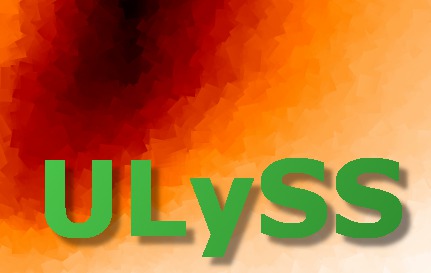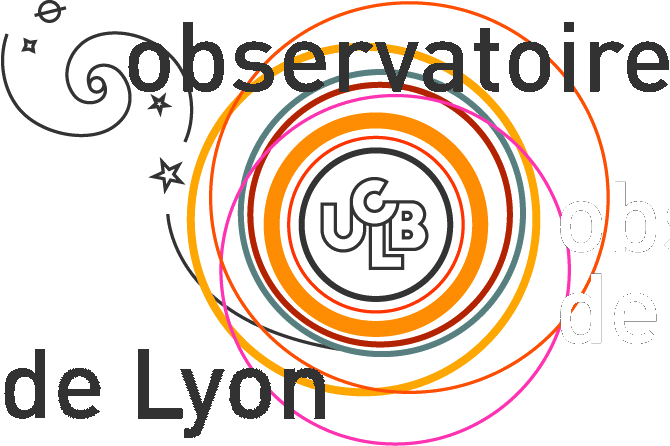The ULySS package requires the
GDL (free) or
IDL (proprietary)
compiler.
The sources, the models and some demonstration data can be downloaded as
a single gzipped tar file containing routines, models and data:
ulyss.1.3.1.tar.gz.
There is a unix configuration script and a makefile to test some dependencies
and to set the paths to the sources. After unpacking the tar file,
type in the main directory:
make install. (the package was also reported to work
under M-S windows, but is not routinely tested with this system).
The
GDL/IDL file uly_startup.pro, automatically created
when the package is installed, can conveniently be called from the
personal
GDL/IDL startup file.
This package is free software distributed under the terms of the
GNU
General Public License
in the hope it will be useful. We would also be pleased to bring
our expertise and collaborate to projects that would use the package.
Beside the official distribution of the package, you may
wish to download other models or
optional routines.
If ULySS was helpful to your research an acknowledgment would be appreciated:
- Cite the paper: Koleva, M., Prugniel, Ph., Bouchard, A. and Wu, Y., 2009, A&A 501, 1269 (arXiv:0903.2979). If you use the SSP models, you should cite also Koleva et al. 2008 MNRAS, 385, 1998, where a validation is presented.
- Indicate the URL of the ULySS home page as a footnote.
ULySS uses functions from the
Astronomy User's Library whose installation is a pre-requisite.
Other libraries are also used, and for convenience the sources are
included in the directory dep:
- MPFIT, Craig Markwardt GDL/IDL implementation of the MINPACK-1 algorithm
(by Moré et al., 1980, available in netlib). Levenberg-Marquart minimization [Note that ULySS has been tested with a 2008 version of this program, included in the 'dep/' directory].
- PRO2HTML, fr
om Erin Sheldon, HTML rendering of a source program.
- Graphic programs from David Fanning.
The development of ULySS started from an adaptation of the
ppxf program of M. Cappellari, and we kept
from this program the principle of optimizing the linear parameters
within the Levenberg-Marquart iteration (in the user's function), as
well as the penalization for the Gauss-Hermite coefficients of the
LOSVD.
Several students contributed to the development and tests of these programs.
The authors of ULySS acknowledge in particular Nicolas Bavouzet,
Paul Blondé, Igor Chilingarian and Martin France.
The development benefited also from many tutorials and programming tips
published on the web. In particular the
Coyote's Guide to IDL Programming by David Fanning is a real gold
mine for the IDL developers.

